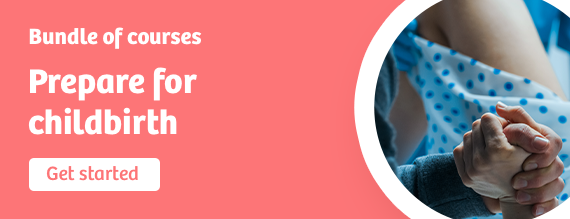Postpartum depression: the untold story!
Postpartum depression is a condition that many mothers suffer from in silence. No woman should go through it without help. Find out in this article, the symptoms, causes, and available treatment options for postpartum depression. To learn more about this key issue in maternal mental health.


Postpartum depression or baby blues?
After giving birth women might feel down, or even sad. If this condition is lived only for a few days, it is called “Baby blues”. Baby blues are related to hormonal changes, women go through after delivery. While the body is readjusting to new hormonal levels, their mood might be affected as well, but only for a short period.
Postpartum depression is a type of depression, that some women experience after childbirth. This condition might last for a few months if left untreated.
Symptoms of postpartum depression
- Depressed mood
- Mood swings
- Sudden crying without a clear reason.
- Difficulty forming a connection with the newborn baby.
This happens because of the low mood the mom is having. And because she is not in the right mental state to feel any love or connection to a new person.
- Withdrawal from social life.
- Changes in appetite.
- Not enjoying previously enjoyable activities.
- In some extreme cases, attempts to hurt herself or the baby.
I must highlight the seriousness of these last symptoms. It is extremely important to consult a mental health professional immediately if a new mom has such thoughts.
Causes of postpartum depression
- Hormonal and physical changes
Every woman is unique, and the changes a woman goes through postpartum are unique as well. Some are more sensitive to changes, this is why some women go through postpartum depression, while others don’t.
- Adjusting to a new reality
In this transition from woman to mother, there are a lot of new responsibilities and life changes that can cause stress and anxiety, which could lead to depression.
- Tiredness and lack of sleep
New moms are often overwhelmed with responsibilities. In Addition to lack of sleep, and inadequate nutrition, all these factors can harm mental health and increase the risk of depression.
- Lack of help and support
Being away from friends and family, and not having a proper support system can increase the risk of suffering from mental health strains postpartum.
- Predisposition
Some women are genetically predisposed to such mental health problems, and they might be more prone to them than others.
Red flags!
If the husband or friends notice that the new mom is suffering from the above symptoms for more than two weeks, this is a red flag that indicates depression. After two weeks the body usually goes back to its normal pre-pregnancy state. After two weeks, if the symptoms persist, it’s time to seek help.
For the friends:
If a new mom refuses to be welcoming of your visits and prefers to be withdrawn and by herself. This can be a serious indication of depression. Definitely, a red flag to watch out for.
For the husband:
- If you notice that your wife’s relationship with her baby is not proper, and she is not being affectionate toward the baby, and not tending to his needs.
- When the mom is not smiling back and laughing with her baby.
- If your wife is oversleeping.
- If she is undereating or overeating.
The husband’s role
The husband, who is also tired, and sleep-deprived, can still be helpful to his wife postpartum in the following ways:
- Sharing the burden and helping as much as possible.
- Spend quality time with his wife.
- Do enjoyable activities that they used to do before the baby’s birth.
These activities will help the new mom with the transition and ease the symptoms. If after all these attempts the symptoms persist, then it’s time to see a mental health professional to seek treatment.
Treatment of postpartum depression
- Managing the symptoms
The mental health specialist will help the new mom understand her symptoms and manage them.
- Cognitive-behavioral therapy
This type of therapy helps adjust thinking patterns and overcome the symptoms.
For example, if the mom feels depressed because she lost her previous life, the therapist will challenge the thought. And show her things from a different perspective to prove to her that she didn’t lose her previous life there has been a change, and with minor adjustments, she can have her old life back.
- Helping the mother to secure attachment to the baby
Encourage the mom to tend to her baby’s needs, and to smile and laugh with him. To encourage her to connect and become attached and involved in her baby’s life.
- Self-care
Help the mom to take care of herself and seek help when needed. So that she can have time for the baby and herself.
- The importance of sleep
Sleep deprivation has a direct effect on mental health. Encouraging a new mom and helping her to get enough sleep is a great way to overcome postpartum depression.
- Healthy diet
New moms need a healthy balanced diet to recover from childbirth and to best care for their physical and mental health.
- Do enjoyable activities
Being outdoors, if possible, or doing sports also helps in overcoming depression.
- Nurturing the marriage
Sharing feelings and keeping communication open with the husband is a great at-home therapy for new moms.
- Social support
Friends and family are a great help. They can help with caring for the baby, and the house responsibilities. If the new mom accepts this help, this will assist in her quick recovery.
- Psychiatric referral
This miraculous help can be a last resort after exhausting the above options. A psychiatrist can prescribe antidepressants that aid in treating postpartum depression.






